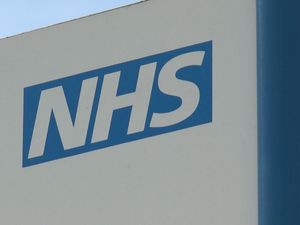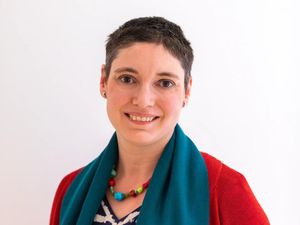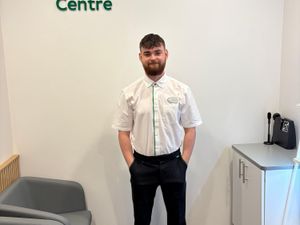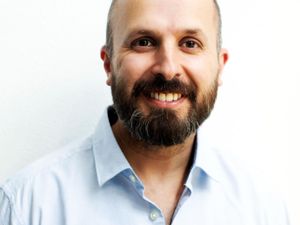Dudley skin cancer survivor who was given a year to live shares sun safety tips
A skin cancer survivor who was given 12 months to live nine years ago is backing a campaign urging people to enjoy the sun safely this summer.
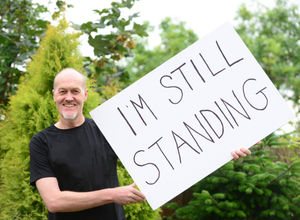
Adrian Webb, 56, says he owes his life to his wife Michele who pushed him to visit his GP when she noticed a mole on his back had changed colour in September 2012.
Now the father-of-two from Dudley is determined to raise vital awareness as latest figures show around 1,300 people in the West Midlands are diagnosed with melanoma – the most serious form of skin cancer - each year.
That’s why he’s joined forces with partners Cancer Research UK and NIVEA Sun, who are offering advice and tips on how people can protect their skin from the sun’s rays.
While UK skin cancer rates are rising, particularly in men, up to nine in 10 cases could be prevented by being safe in the sun and using a combination of shade, clothing and sunscreen to avoid burning.
Taking these three simple steps helps to minimise the risk of lasting damage to DNA in skin cells, which can lead to skin cancer.
Adrian says it really is “easy as one, two, three” and, following his emotional cancer journey, he is keen to underline the importance of the message.
He said: “Being diagnosed with melanoma was a huge shock and a very difficult time. When I was told my cancer had spread, I was devastated. I didn’t know how to explain to my wife and children that I might not be around to see them do all the things we’d taken for granted like graduating and getting married.”
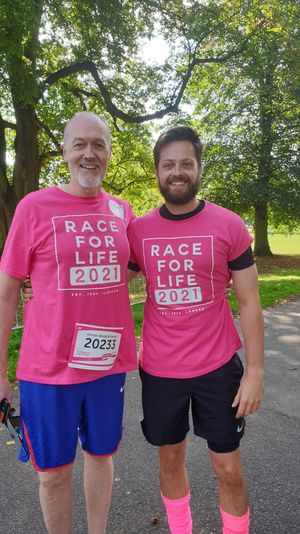
This month, Adrian will be best man at his son Josh’s wedding which has twice been postponed due to Covid-19.
“Everything I’ve been through has made me want to encourage people to think about their sun habits and take precautions,” said Adrian. “Sunburn doesn’t just happen abroad or on summer holidays. It can happen in the UK, even on a cloudy day.
"It’s tempting to want to make the most of warm weather but getting sunburnt increases your chance of getting skin cancer - so it’s really important that people take care. Now I try and spend some time out of the sun, wear a hat, make sure my shoulders are covered and that I’ve got my sunscreen with me.”
Adrian’s wife Michele first noticed a mole on his back had changed colour in 2012. After some nagging, he visited the GP.
“I had the mole cut out of my back and I thought that would be that but ten days after having the stitches out I discovered a lump under my arm,” recalled Adrian.
Further surgery took place in February 2013 followed by a course of radiotherapy but, within two months, Adrian received more bad news.
“I woke up one morning with five marble-shaped lumps all over my body and I knew it was serious,” added Adrian. “Those next two months were the worst of my life because I was told I might only have 12 months to live. My only hope then was trial drug therapy.”
Experimental treatment ended in 2016 and Adrian has been in remission ever since.
“I owe Michele my life because if I’d left it any longer to go to the GP I probably wouldn’t be here now,” said Adrian. “I may not have seen my daughter graduate and I certainly wouldn’t be watching my son get married next month.
“The whole experience has really spurred me on to want to help others and spread the word about skin cancer prevention and early detection. It could make all the difference, so I always encourage people to be safe in the sun and see their GP if they notice any unusual changes to their skin.”
Anyone can get sunburnt or develop skin cancer, so it’s important that everyone takes care in the sun. Those at higher risk include people with fair skin and hair, or light-coloured eyes, as well as people with lots of moles and freckles or a family history of skin cancer.
Karis Betts, health information manager at Cancer Research UK, advises: “It’s important to remember the sun isn’t only strong abroad. It can be strong enough across the UK to burn between mid-March and mid-October and is strongest during the middle of the day, not when it’s hottest.
“Avoid getting caught out by checking the UV index on the weather forecast or online. If it’s 3 or above, it’s time to think about sun safety – especially if you have light or fair-coloured skin or burn easily.
“Whether you’re abroad, having a staycation or just out-and about, remember the three-step method to enjoy warm weather safely – seek shade, cover up and regularly apply sunscreen.”
For more information and tips, visit cruk.org/sunsafety.


